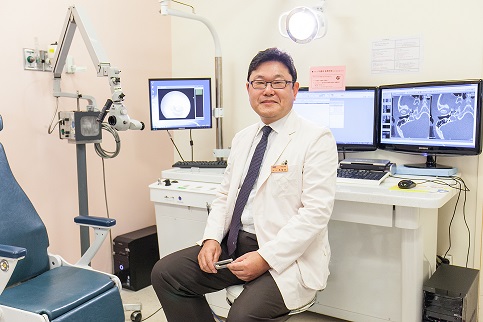A study conducted by the Samsung Medical Center has shown that the prevalence of hearing loss varies according to socioeconomic factors such as sex, education, income, as well as age, the hospital said Thursday.
A research team led by Professor Cho Yang-seon조양선 of the Department of Otorhinolaryngology investigated the prevalence of hearing loss in 18,545 people over the age of 12 based on the National Health Research Survey국민건강연구조사.
According to the research based on testing the auditory canal of cloth years among people with a standard tympanic membrane, two out of 10 Koreans-- 21.9 percent of the hearing-impaired people-- were suspected to have hearing loss.

Age directly influenced these hearing impairments, researchers have confirmed. A separate analysis of patients in their 40s or older shows their prevalence rises to 34.8 percent. The results for the elderly are the same, whose incidence increases by 2.5 times from 60 to 70. Over 70 years of age, 81.9 percent of the cases were diagnosed with hearing loss.
Other than age, gender was also associated with hearing loss. The researchers report that hearing loss is more common in men than in women.
Of the 7,434 people in their 40s or older, the prevalence rate of men was 40 percent, more than 10 percent higher than the 29.9 percent of women. According to the relative risk, men were likely to have 47 percent higher chance of hearing loss than women.
It is also related to the personal background of the person, such as income or education, which seem irrelevant to hearing loss. The prevalence rate of the lower-income group was 56.8 percent, while those for the middle class and the upper class fell to 32.9 percent and 23.1 percent, respectively.
Regarding educational background, people without high school diplomas showed the highest score of 49.5 percent, followed by 26.8 percent of high school graduates and 18 percent of those who have a bachelor's degree or higher.
The causes of hearing loss included noise in the workplace, depression, anemia, stroke, and smoking.
In a comprehensive analysis of the causes of hearing loss, the researchers found that working in an environment that is continuously exposed to noise when the other conditions are the same, the risk of hearing loss is 1.28 times higher than for people who are not, the hospital said.
Also, if the depressed state continued for more than two weeks, the risk was 1.29 times higher, and the history of stroke was 1.72 times higher. Anemia is also considered to be one of the causes of hearing loss, and the risk of anemia is 1.36 times higher, the hospital added.
In particular, smoking increases the risk of hearing loss by 1.36 times, and up to 1.55 times in the case of people 20 or older.
"The study shows that it is difficult to treat hearing loss if you look at only the illness itself,” Professor Cho said. "As society ages rapidly, the number of people with hearing loss is increasing along with its social and economic costs. So it is necessary to try to solve the problems from a comprehensive approach by taking social and political issues into account."

